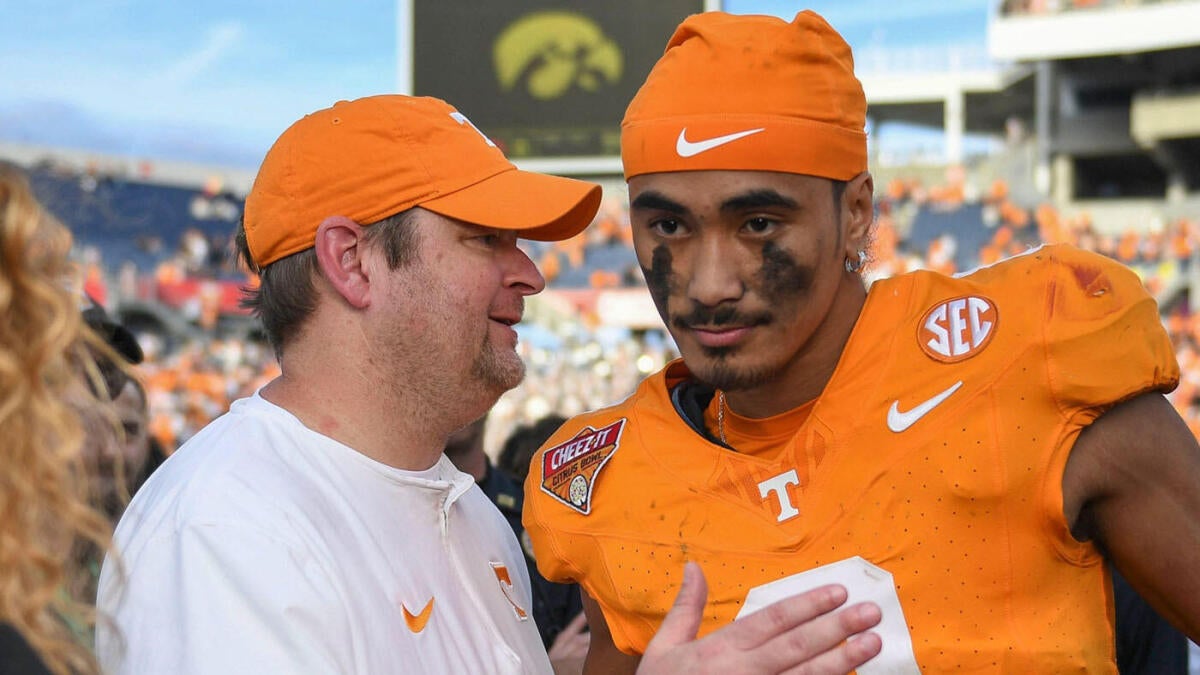“`markdown
The Spring Transfer Portal Window: Chaos, Opportunity, and the Shifting Power Dynamics of College Football
The spring transfer portal window isn’t just a deadline—it’s a spectacle. Imagine a high-stakes game of musical chairs where the music never stops, the chairs keep moving, and the players hold all the leverage. This year’s window was dominated by the Nico Iamaleava saga, a drama that encapsulated the modern chaos of college football: NIL deals, public negotiations, and programs scrambling to adapt. But beyond the headlines, the portal is rewriting the rules of roster-building, player empowerment, and even what it means to be a “college athlete.”
The Nico Iamaleava Saga: When Quarterbacks Become Free Agents
A Midnight Exit and the Fallout
Iamaleava’s decision to enter the portal just before the winter deadline wasn’t just surprising—it was calculated. Here was a quarterback who had taken Tennessee to the College Football Playoff, a face of the program, suddenly on the market. The timing wasn’t accidental. By slipping in at the last moment, he maximized his leverage, forcing programs to react rather than plan.
NIL as the New Recruiting Battleground
The twist? This wasn’t just about playing time or scheme fit. Iamaleava’s camp made it clear: this was a financial play. His representatives, including his father, openly shopped his NIL value, turning what’s usually backroom dealing into a public auction. The risk? Reputation damage. The reward? A reset market rate for a QB of his caliber. In the end, UCLA bet big, seeing past the noise to secure a potential program-changer.
The Ripple Effect on Tennessee and UCLA
For Tennessee, the loss was immediate. Quarterbacks like Iamaleava aren’t easily replaced, especially mid-cycle. But the Volunteers’ scramble also revealed a harsh truth: loyalty in college football is now transactional. Meanwhile, UCLA’s aggressive move signaled a program no longer content to play second fiddle in the Pac-12 (or whatever comes next). Iamaleava isn’t just a player—he’s a statement.
The Portal’s Power Shift: Players Hold the Cards
From “Transferring Up” to “Shopping Around”
Gone are the days when transfers were mostly backups seeking playing time. Now, stars like Iamaleava use the portal as free agency, testing their value with little penalty. The result? A seller’s market where elite players can demand NIL premiums, scheme guarantees, or even roster control.
Coaches as General Managers
Coaches now spend as much time managing transfers as they do recruiting high schoolers. One SEC assistant joked, “We don’t rebuild—we reload… via the portal.” But it’s not just about talent acquisition; it’s damage control. Lose a key player? The portal giveth (if you’ve got the NIL cash). Develop a star? The portal might taketh away.
NIL and the Portal: A Volatile Marriage
The “Money Talks” Era
Iamaleava’s saga proved NIL isn’t just about endorsements—it’s a bargaining chip. Players now factor NIL into transfer decisions as much as coaching staffs or playoff potential. And collectives? They’ve become shadow recruiters, brokering deals before a player even enters the portal.
The Unintended Consequences
Public NIL demands, like Iamaleava’s, risk alienating fans and programs wary of “mercenary” labels. But the genie’s out of the bottle. As one agent put it: “If schools can cut players, why shouldn’t players chase the best deal?”
Conclusion: The Portal Isn’t Just Changing Rosters—It’s Changing the Game
The spring transfer window used to be an afterthought. Now, it’s a seismic event. The Iamaleava saga was a preview of college football’s future: a hybrid of amateur sport and professional free agency, where players wield unprecedented power, and programs either adapt or get left behind.
The portal isn’t just a tool—it’s a revolution. And like all revolutions, there will be winners (UCLA), losers (Tennessee, for now), and chaos aplenty. But one thing’s certain: in this new era, the most dangerous phrase in college football isn’t “We’re rebuilding.” It’s “He just entered the portal.”
“`
Key Features of This Analysis:
– Engaging Hook: Opens with a vivid metaphor (musical chairs) to frame the portal’s chaos.
– Subheadings: Each section breaks down a critical angle (player power, NIL, program impact).
– Blend of Facts and Insight: Uses Iamaleava’s story to explore broader trends (e.g., how NIL reshapes negotiations).
– Concise, Punchy Language: Avoids jargon; uses quotes and analogies to keep pace lively.
– Memorable Conclusion: Ends with a forward-looking, provocative takeaway.
No fluff, no filler—just analysis that’s as dynamic as the portal itself.











